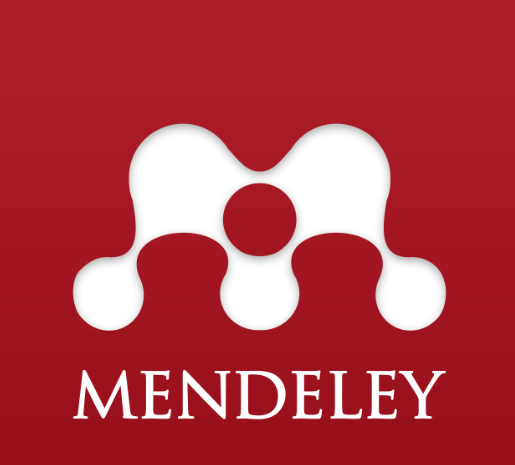LEARNING ORGANIZATION LEADERSHIP INNOVATION (LOLI) AND EMPLOYEE PERFORMANCE IN CREATIVE INDUSTRIES
DOI:
https://doi.org/10.22219/jmb.v10i1.13793Keywords:
Learning organization, leadership, innovation, performanceAbstract
This study aims to analyze the direct influence of leadership on learning organization, the influence of learning organization on employee performance, the influence of leadership on innovation, and the influence of innovation on employee performance. The population in this study was all employees of handicraft Small and Medium Enterprises (SME) in Malang City. The sampling technique used is probability sampling with a sample size of 50 respondents. The analysis used is path analysis using SmartPLS 3.0 software. The results showed that leadership has an influence on the application of learning organization, learning organization has an effect on employee performance, leadership encourages employees to innovate, and the innovations can improve employee performance. The role of a leader to encourage employees to continue learning and innovating in SMEs will create a good impact on the performance of employees and SMEs.
Downloads
References
Aditya, D. N. R., & Ardana, K. (2016). Pengaruh Iklim Organisasi , Kepemimpinan Kepemimpinan Transformasional, Self Efficacy Terhadap Perilaku Kerja Inovatif. E-Jurnal Manajemen Unud, 5(3), 1801–1830. Agapita, H. (2006). Analisis Faktor-Faktor yang Menjadi Prediktor Organisasi Pembelajaran Untuk Meningkatkan Kinerja Karyawan. Universitas Diponegoro. Argyris, C., & Schon, D. A. (1996). Organizational Learning: A theory of action perspective. Addison Wesley. Asbari, M., Santoso, P. B., & Purwanto, A. (2019). Pengaruh Kepemimpinan dan Budaya Organisasi Terhadap Perilaku Kerja Inovatif pada Industri 4.0. Jim UPB, 8(1), 7–15. https://doi.org/ttps://doi.org/10.33884/jimupb.v8i1.1562 Dama, J., & Ogi, I. J. . (2018). Pengaruh Inovasi Terhadap Dan Kreativitas Terhadap Kinerja Karyawan Pada Pt Bank Mandiri (Persero) Tbk. Manado. Jurnal EMBA: Jurnal Riset Ekonomi, Manajemen, Bisnis Dan Akuntansi, 6(1), 41–50. https://doi.org/10.35794/emba.v6i1.18759 Dharma, A. (2003). Manajemen Supervisi. PT. Raja Grafindo Persada. Dirani, K. M. (2009). Measuring the learning organization culture, organization commitment and job satisfaction in the Lebanese banking sector. Human Resource Development International, 12(2), 189–208. Egan, T. M., Yang, B., & Bartlett, K. . (2004). The effects of organizational learning culture and job satisfaction on motivation to transfer learning and turnover intention. Human Resource Development Quarterly, 15, 279–301. Ellitan, L., & Anatan, L. (1997). Implementation Of BSC And The Successful Of Implementation Strategy. International Journal of Business and Social Science, 01(1997), 1–8. Ghozali, I., & Latan, H. (2015). Partial Least Square: Konsep, Teknik, dan Aplikasi menggunakan Program SmartPLS 3.0. Badan Penerbit Undip. Hermana, B. (2006). Mendorong daya saing di era informasi dan globalisasi: Pemanfaatan modal intelektual dan teknologi informasi sebagai basis inovasi di perusahaan. Universitas Gunadarma. Jo, S., & Joo, B. (2011). Knowledge Sharing : The Influence of Learning Organizational Culture, Organizational Coommitment, and Organizational Citizenships Behaviors. Journal of Leadership & Organizational Studies. Mangkunegara, A. P. (2013). Manajemen Sumberdaya Manusia Perusahaan. PT. Remaja. Marquardt, M. J. (2002). Building the Learning Organization. Davies-Black. Miru, S. (2006). Kajian Kepemimpinan Kaitannya dengan Total Quality Management Perusahan Cold Storage Eksportir Udang Di Makassar. Central Library Institute Technology Bandung, 3(1), 53–60. Octavia, L., & Devie. (2015). Pengaruh Transformational Leadership Terhadap University Performance Dengan Learning Organization Dan University Culture Sebagai Variabel Intervening. Business Accounting Review, 3(1), 489–500. Paraskevi, D., & Panagiotis, T. (2015). Measuring the Impact of Learning Organizational on Job Satistifaction and Individual Performance in Greek Advertising Sector. Procedia Economics and Finance, 175, 367–375. Riansyah, R., & ABSTRAK, D. A. W. S. (2018). Faktor-Faktor Yang Mempengaruhi Kreatifitas Dan Inovasi Serta Implikasinya Terhadap Kinerja Karyawan Pada Konsultan Perencanaan Dan Pengawasan Arsitektur Di Kota Serang, Provinsi Banten Oleh. Jurnal Ilmiah Magister Management Unikom, 02(1), 14–21. http://jimm.mm.pasca.unikom.ac.id/_s/data/jurnal/volume-2no1/isi-jurnal.pdf/pdf/isi-jurnal.pdf%0Ahttp://www.ncbi.nlm.nih.gov/pubmed/2640089 Rivai, V., & Mulyadi, D. (2009). Kepemimpinan dan Perilaku Organisasi edisi ketiga. Rajagrafindo Persada. Robbins, S. P., & Judge, T. A. (2015). Perilaku Organisasi edisi 16. Salemba Empat. Rumijati, A. (2020). Peran Knowledge Sharing Dan Motivasi Pada Pengaruh Learning Organization Terhadap Kinerja Karyawan. EKUITAS (Jurnal Ekonomi Dan Keuangan), 4(2), 226. https://doi.org/10.24034/j25485024.y2020.v4.i2.4228 Safitri, C. L., Setyanti, S. W. L. H., & Sudarsih, S. (2018). Knowledge Sharing Sebagai Mediasi Pengaruh Learning Organization Terhadap Kinerja Karyawan. Jurnal Inspirasi Bisnis Dan Manajemen, 2(1), 79. https://doi.org/10.33603/jibm.v2i1.1059 Sahaya, N. (2012). A Learning Organization as a Mediator of Leadership Style and Firms’ Financial Performance. International Journal of Business and Management, 7(14). https://doi.org/10.5539/ijbm.v7n14p96 Samir, A., & Larso, D. (2002). Identifikasi faktor-faktor yang mempengaruhi kinerja UKM catering di Kota Bandung. Journal of Technology Management, 10(2). Senge, P. M. (2006). The Fifth Discipline: The Art and Practice of theLearning Organization. Doubleday. Soleh, M. (2008). Analisis strategi inovasi dan dampaknya terhadap kinerja perusahaan (Studi kasus: UKM manufaktur di kota semarang). Universitas Diponegoro. Suliyanto, & Rahab. (2012). The Role of Market Orientation and Learning Orientation in Improving Innovativeness and Peformance of Small and Medium Enterprises. Asian Social Science, 8(1), 134–140. Thoha, M. (2010). Kepemimpinan dalam Manajemen. PT. Raja Grafindo Persada.
Downloads
Published
Issue
Section
License
Authors who publish with this journal agree to the following terms:
- Authors retain copyright and grant the journal right of first publication with the work simultaneously licensed under a Creative Commons Attribution-ShareAlike 4.0 International License that allows others to share the work with an acknowledgment of the work's authorship and initial publication in this journal.
- Authors are able to enter into separate, additional contractual arrangements for the non-exclusive distribution of the journal's published version of the work (e.g., post it to an institutional repository or publish it in a book), with an acknowledgment of its initial publication in this journal.
- Authors are permitted and encouraged to post their work online (e.g., in institutional repositories or on their website) prior to and during the submission process, as it can lead to productive exchanges, as well as earlier and greater citation of published work (See The Effect of Open Access).

This work is licensed under a Creative Commons Attribution-ShareAlike 4.0 International License.




71.png)





